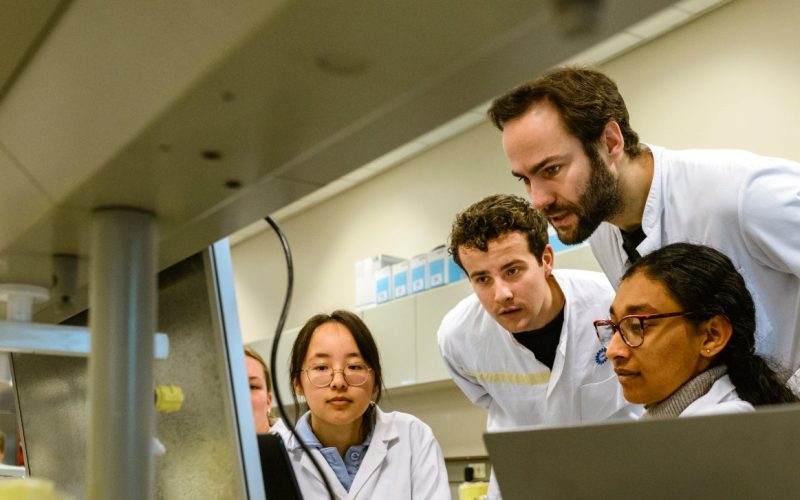In the Women’s Heart Challenge – a Utrecht educational challenge, which starts up again this week – students think along with researchers, doctors and patients about the rare heart disease SCAD. The best idea will actually be implemented by students at UMC Utrecht.
Whereas in an earlier edition of the education challenge, students participated in new research on pulmonary CVD, this year they are contributing to scientific research on SCAD (Spontaneous Coronary Artery Dissection). This disease occurs mainly in young women without risk factors for cardiovascular disease and can lead to vasoconstriction or heart attack.
During the kick-off at the FC Utrecht stadium Galgenwaard on Oct. 13, more than 400 students of Medicine and Biomedical Sciences will be updated on SCAD by patients, cardiologists, biomedical researchers and other stakeholders. “It is important that students are informed by all these professionals,” said initiators Niels Bovenschen (professor of research-driven education in biomedical sciences, affiliated with the Department of Pathology at UMC Utrecht) and Marco van Brussel (associate professor of Medical Education, affiliated with Children’s Movement Center UMC Utrecht). “In this way, they will begin to see where the complex societal challenges currently lie that can only be approached from multiple disciplines.” Together with PhD students Michael Schakelaar and Annemieke Maas, they are coordinating this challenge.
Hester den Ruijter (professor of cardiovascular disease in women) and lecturer-researcher Anne-Mar van Ommen add, “This is a fantastic opportunity to bring attention to this problem and to use the innovative power and openness of students to do innovative research into this condition. This is really badly needed.”
Meanwhile, the interdisciplinary health challenge has become a regular part of the regular education program within the Faculty of Medicine of the UMC Utrecht, students receive credits for it. Based on the educational philosophy the New Utrecht School, interdisciplinary groups of students in Medicine and Biomedical Sciences work together under professional supervision during the challenge.
Biology, Chemistry, Pharmacy and Medical Humanities students can also join on an optional basis this year. With the ultimate goal of contributing to scientific research on SCAD.
During the final symposium of the Women’s Heart Challenge in Stadion Galgenwaard on Nov. 10, the most promising idea will be announced. Thirty-six students will actually execute this idea later in the academic year, in the Bachelor Research Hub of the UMC Utrecht.
New this year is the expansion of the Bachelor Research Hub to include other disciplines. In the Student Research Hub network thus created, students from different disciplines can work together with doctors, researchers, patients and other stakeholders on challenges from different perspectives. From medical technology to planetary health and from a biomedical laboratory and epidemiology to artificial intelligence. Credits can be earned with this as well.
Would you like to become a supporter of more research into SCAD, just like the FC Utrecht women’s team? Share this link with your network for a (small) contribution.
